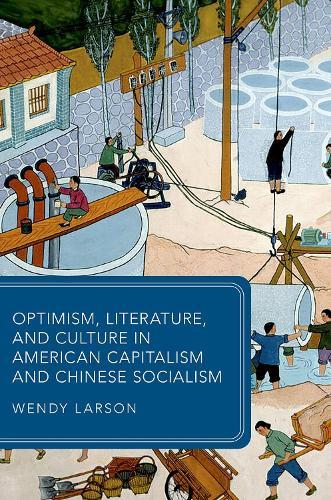Overview
This book examines and interprets the uncanny similarity between capitalism and socialism over the twentieth century as both systems found ways to encourage happiness and optimism in their citizens. As inheritors of the Enlightenment's emphasis on scientific rationality, these cultures sought to instill in their citizens a belief in progress: in essence, history shows steady improvement, and the future will continue in this direction indefinitely. Optimism--which bears a temporal quality, a continual gaze to the future--is the favored state of mind in both capitalist and socialist societies, which have embraced progress as a theory of history. Related to optimism is happiness, which emphasizes the present. When progress as a theory of history is generally accepted, happiness becomes a transference of future advancement into present subjectivity, ultimately expressing acceptance of, and satisfaction with, society. Fundamentally a literary study strongly embedded in history, this project looks to fiction to show not only how imaginary characters became models for readers, but also how narrative encouraged readers to engage in a struggle for new values. Characters worked out--or failed to work out--questions related to the personal and larger cultural shaping of an ongoing optimism. At the same time, writers questioned these models and, purposefully or otherwise, displayed the downsides of excessive, mandated, or coerced optimism. They also challenged the way in which optimism encompassed a belief in progress that itself could be camouflaged, and the demands for a happiness that imposed everyone else's wellbeing before one's own. The book compares Yang Mo's famous Song of Youth (1958) with Horatio Alger Jr.'s Ragged Dick (1868), Eleanor Hodgman Porter's Pollyanna (1913), and Frederick Kohner's Gidget (1957); Wang Meng's Long Live Youth (written 1953) and A Young Man Arrives at the Organization Department (1956) are evaluated against Jack Kerouac's On the Road (1958). This study both incorporates and challenges various political and cultural theoretical concepts including revolutionary optimism, permanent revolution, the theory of literary typicality, the New Soviet Person and the positive hero, optimistic autosuggestion, cultural authenticity, and positive thinking.
Full Product Details
Author: Wendy Larson (Professor Emeritus, East Asian Languages and Literatures, University of Oregon)
Publisher: Oxford University Press
Imprint: Oxford University Press
ISBN: 9780198957928
ISBN 10: 0198957920
Pages: 208
Publication Date: 09 October 2025
Audience:
Professional and scholarly
,
College/higher education
,
Professional & Vocational
,
Postgraduate, Research & Scholarly
Format: Hardback
Publisher's Status: Forthcoming
Availability: To order

Author Information
Wendy Larson is Professor Emerita of East Asian Languages and Literature at the University of Oregon. Her research has focused on the negotiations of Chinese filmmakers and writers with the conditions of modernity and globalization, and includes monographs on Chinese autobiography, gender and literary theory, socialist theories of the mind, and the filmmaker Zhang Yimou. She is working on a monograph on the work of the 2012 winner of the Nobel Prize for Literature, Mo Yan.



